Premium Only Content

Other Words: The Turner Diaries, Chapter 7
Chapter Seven.
October 23, 1991. This morning is my first chance to write since
Katherine and I picked up the munitions in Maryland last week.
Our unit has carried out three missions in the last six days.
Altogether, the Organization is held responsible for more than
200 separate incidents in different parts of the country, according
to news reports. We are really into the thick of a guerrilla war now.
Last Monday night, Henry, George, and I raided the Washington
Post. It was a quick thing, requiring little preparation, although we
did argue for a few minutes ahead of time about the way it should
be done.
Henry was for going after personnel, but we ended up wrecking
one of their presses instead. Henry's idea was that the three of us
should force our way into the newsroom and editorial offices on
the sixth floor of the Washington Post building and kill as many
people as we could with fragmentation grenades and machine
guns. If we struck just before their 7:30 PM deadline, we would
catch nearly everyone in.
George overruled that maneuver as being too risky to be carried
out without detailed planning. Hundreds of people work in the
Washington Post building, and the sounds of grenades and
shooting on the sixth floor would probably bring a lot of them
swarming into the stairwells and lobby. If we tried to come down
on the elevators, someone could pull the main switch on us, and
we'd be trapped.
On the other hand, the Post's pressroom is visible through a big
plate-glass window from the lobby. So I rigged up a makeshift
bomb by taping a hand grenade to a small anti-tank mine. The
whole thing weighed about six pounds and was quite awkward, but
it could be thrown about 50 feet like an oversized grenade.
We parked in an alley about 100 yards from the main entrance of
the Post. As soon as George had disarmed the guard, Henry blasted
a huge hole in the press room window with his sawed-off shotgun.
Then I pulled the pin on the grenade-mine contraption I had rigged
and heaved it into the rollers of the nearest press, which was just
being plated up for the night's run.
We ducked behind the masonry parapet while the bomb exploded,
and then Henry and I hurriedly threw half-a-dozen thermite
grenades into the pressroom. We were all back in the all before
anyone had even come out onto the sidewalk, and so no one saw
our car. Katherine, of course, had done her usual magic with our
faces.
The next morning the Post appeared on the streets about an hour
later than usual, and home subscribers missed their papers
altogether, since the early editions had been skipped, but the Post
was otherwise apparently none the worse for wear. We had
substantially damaged only one press with our bomb and smoked
things up a bit with our incendiary grenades, one of which set a
barrel of ink afire, but the Post had lost virtually none of its
capacity for spreading its lies and venom as a result of our efforts.
We were quite chagrined by this outcome. It became clear to us
that we had foolishly taken a risk far out of proportion to any
advantage which could have been reasonably expected.
We have resolved that, in the future, we will undertake no
mission on our own initiative until we have carefully evaluated its
objective and convinced ourselves that it is worth the risk. We
cannot afford to strike the System simply for the sake of striking,
or we will become like an army of gnats trying to bite an elephant
to death. Each blow must be carefully calculated for its effect.
Henry's idea of attacking the Post's newsroom and editorial of
fices seems much better in retrospect. We should have held off for
a few days in order to work out a sound plan which would have
really crippled the Post, instead of rushing into our halfassed raid
on its presses. All we really succeeded in doing was putting the
Post on guard and making any future raids much more hazardous.
We did redeem ourselves a bit the morning after the raid,
however. Surmising that the editorial staff had spent most of the
night in their offices writing new copy about the events of the
evening and would, therefore, be at home sleeping late, we decided
to pay one of them a visit.
After looking over the newspaper, we settled on the editorial page
editor, who had written a particularly vicious editorial against us.
His words dripped with Talmudic hatred. Racists like us, he said,
deserve no consideration from the police or any decent citizen. We
should be shot down on sight like mad dogs. Quite a contrast with
his usual solicitude for Black rapists and murderers and his tirades
against "police brutality" and "overreaction" !
Since his editorial was an incitement to murder, it seemed to us
only appropriate that he be given a taste of his own remedy.
Henry and I rode a bus downtown and then waved down a taxi
with a Black driver. By the time we pulled up in the editor's
driveway in Silver Spring, the Black was in the trunk-dead.
I waited in the taxi while Henry rang the bell and told the woman
who answered that he was delivering a package from the Post and
needed a signed receipt. When the sleepy-eyed editor appeared at
the door in his bathrobe a few moments later, Henry literally blew
him in half with two blasts from the sawed-off shotgun he had
been carrying under his jacket.
On Wednesday all four of us (Katherine drove the car)
completely destroyed the Washington area's most powerful TV
transmitter. That one was hairy, and there were moments when I
didn't think we were going to get away.
It is still not clear what effect all our activity is having on the
general public. For the most part they are just going about their
affairs as they always have.
There have been effects, though. The National Guards of a dozen
states have been called up to reinforce local police forces, and
there are now large, around-the-clock guard details stationed
outside every government building in Washington, the major
media of fices in a number of cities, and the homes of hundreds of
government officials.
Within a week, I suspect, every Congressman, every Federal judge,
and every Federal bureaucrat from the assistant-secretary
level on up will have been assigned a permanent bodyguard detail.
All the sandbags, machine guns, and khaki uniforms that one is
beginning to see everywhere in Washington cannot help but raise
the consciousness of the public-although I'm sure the situation is
much less dramatic out in Iowa than it is here.
Our biggest difficulty is that the public sees us and everything we
do only through the media.
We are able to make ourselves enough
of a nuisance that the media can't afford to ignore or belittle us,
and so they are using the opposite tactic of deluging the public
with distortions, half-truths, and lies about us. For the last two
weeks they've been giving us a non-stop roasting, trying to
convince everyone that we are the incarnation of evil, a threat to
everything decent, noble, and worthwhile.
They have unleashed the full power of the mass media on us; not
just the usual biased-news treatment, but long "background"
articles in the Sunday supplements, complete with faked
photographs of Organization meetings and activities, discussions
by "experts" on TV panel shows-everything! Some of the stories
they've invented about us are really incredible, but I'm afraid the
American public is just gullible enough to believe them.
What's happening now is reminiscent of the media campaign
against Hitler and the Germans back in the 1940's: stories about
Hitler flying into rages and chewing carpets, phony German plans
for the invasion of America, babies being skinned alive to make
lampshades and then boiled down into soap, girls kidnapped and
sent to Nazi "stud farms." The Jews convinced the American
people that those stories were true, and the result was World War
II, with millions of the best of our race butchered -by us-and all of
eastern and central Europe turned into a huge, communist prison
camp.
Now it looks very much like the System has again made the
deliberate decision to build up a state of war hysteria in the public
by representing us as an even bigger threat than we really are. We
are the new Germans, and the country is being wound up psychologically to lick us.
Thus, the System is cooperating more fully than we could have
imagined in arousing the public's consciousness of our struggle.
What is unnerving about it is my strong suspicion that the top
echelons in the System aren't really that worried about our threat to
them and are cynically using us as an excuse for carrying through
certain programs of their own, such as the internal-passport
program.
Our unit was assigned the general task-right after the FBI
bombing-of combating the media in this area by direct action, Just
as other units were assigned other arms of the System as targets.
But it is clear that we can't win by direct action alone; there are too
many of them and too few of us. We must convince a substantial
portion of the American people that what we are doing iS both
necessary and proper.
The latter is a propaganda task, and so far we haven't been very
successful. Units 2 and 6 are primarily responsible for propaganda
in the Washington area, and I understand that Unit 6's people have
strewn out tons of leaflets in the streets; Henry picked up one from
a sidewalk downtown yesterday. I'm afraid that leaflets alone can't
make much headway against the System's mass media, though.
Our most spectacular propaganda effort here occurred last
Wednesday, and it ended in a major tragedy. The same day our
unit blew up the TV station, three men from Unit 6 seized a radio
station and began broadcasting a call for the public to join the
Organization's fight to smash the System.
They had pre-recorded their message on tape, and they
boobytrapped the doors to the station, after locking all the station
employees in a supply closet. They intended to make their getaway
while the tape was being broadcast, hoping that the police would
think they were still inside and would lay siege to the place with
tear gas-thus giving them half an hour or more of air time.
But the police arrived sooner than expected and stormed the
station almost immediately, trapping our men inside. Two were
shot to death in the ensuing fight, and the third is not expected to live.
The Organization's message was on the air for less than 10 minutes.
Those were the first casualties we've suffered here, but they just
about wiped out Unit 6. Their survivors, two women and a man,
have moved into our place temporarily. With one of their members
in the hands of the police, they had to abandon their own
headquarters immediately, of course.
With it we lost one of the Organization's two printing presses in
the Washington area, although we were able to clear out most of
their printing supplies and lighter equipment. And we gained their
pickup truck, which will really be handy if they stay here.
October 28. Last night I had to do the most unpleasant thing that I
have been called to do since joining the Organization four years
ago. I participated in the execution of a mutineer.
Harry Powell was Unit 5's leader. Last week, when Washington
Field Command gave his unit the assignment of assassinating two
of the most obnoxious and outspoken advocates of racial mixing in
this area-a priest and a rabbi, coauthors of a widely publicized
petition to Congress requesting special tax advantages for racially
mixed marned couples - Powell refused the assignment. He sent a
message back to WFC saying that he was opposed to the further
use of violence and that his unit would not participate in any acts
of terrorism.
He was immediately placed under arrest, and yesterday one
representative from each unit under WFC-including Unit 5- was
summoned to judge him. Unit 10 was not able to send anyone, and
so 11 members-eight men and three women- met with an officer
from WFC in the basement storeroom of a gift shop owned by one
of our "legals." I was Unit One's representative.
The officer from WFC stated the case against Powell very briefly.
The Unit 5 representative then confirmed the facts: Powell had not
only refused to obey the assassination order, but he had instructed
the members of his unit not to obey either. Fortunately, they had
not allowed themselves to be subverted by him.
Powell was then given an opportunity to speak in his behalf.
He did so for more than two hours, interrupted occasionally by a
question from one of us. What he said really shook me, but it made
our decision easier for all of us, I am sure.
Harry Powell was, in essence, a "responsible conservative."
The fact that he was not only a member of the Organization but had
become a unit leader reflects more on the Organization than it does
on him. His basic complaint was that all our acts of terror against
the System were only making things worse by "provoking" the
System into taking more and more repressive measures.
Well, of course, we all understood that! Or, at least, I thought we
all understood it. Apparently Powell didn't. That is, he didn't
understand that one of the major purposes of political terror,
always and everywhere, is to force the authorities to take reprisals
and to become more repressive, thus alienating a portion of the
population and generating sympathy for the terrorists. And the
other purpose is to create unrest by destroying the population's
sense of security and their belief in the invincibility of the
government.
As Powell continued talking, it became clearer and clearer that he
was a conservative, not a revolutionary. He talked as if the whole
purpose of the Organization were to force the System to institute
certain reforms, rather than to destroy the System, root and branch,
and build something radically and fundamentally different in its
place.
He was opposed to the System because it taxed his business too
heavily. (He had owned a hardware store before we were forced
underground.) He was opposed to the System's permissiveness
with Blacks, because crime and rioting were bad for business. He
was opposed to the System's confiscation of firearms, because he
felt he needed a gun for personal security. His were the
motivations of a libertarian, the sort of self-centered individual
who sees the basic evil in government as a limitation on free
enterprise.
Someone asked him whether he had forgotten what the Organization has repeated over and over, namely, that our struggle
is to secure the future of our race, and that the issue of individual
freedom is subordinate to that one, overwhelming purpose. His
retort was that the Organization's violent tactics are benefiting
neither our race nor individual freedom.
This answer proved again that he didn't really understand what
we are trying to do. His initial approval of the use of force against
the System was based on the naive assumption that, by God, we'll
show those bastards! When the System, instead of backing down,
began tightening the screws even faster, he decided that our policy
of terrorism is counter-productive.
He simply could not accept the fact that the path to our goal
cannot be a retracing of our course to some earlier stage in our
history, but must instead be an overcoming of the present and a
forging ahead into the future-with us choosing the direction instead
of the System. Until we have torn the rudder out of its grasp and
thrown the System overboard, the ship of state will go careening
on its hazardous way. There will be no stopping, no going back.
Since we are already among rocks and shoals, we are bound to get
scraped up pretty badly before we find any clear sailing.
Maybe he was right that our tactics are wrong; the reaction of the
people will eventually answer that question. But his whole attitude,
his whole orientation was wrong. As I listened to Powell I was
reminded of the late-19th century writer, Brooks Adams, and his
division of the human race into two classes: spiritual man and
economic man. Powell was the epitome of economic man.
Ideologies, ultimate purposes, the fundamental contradiction
between the System's world view and ours-all these things had no
meaning for him. He regarded the Organization's philosophy as
just so much ideological flypaper designed to catch recruits for us.
He saw our struggle against the System as a contest for power and
nothing more. If we could not whip them, then we should try to
force them to compromise with us.
I wondered how many others in the Organization thought the way
Powell did, and I shuddered. We have been forced to grow tooquickly.
There has not been sufficient time to develop in all our
people the essentially religious attitude toward our purpose and our
doctrines which would have prevented the Powell incident by
screening him out early.
As it was, we had no real choice in deciding Powell's fate. There
was not only his disobedience to consider, but also the fact that he
had revealed himself to be fundamentally unreliable. To have one
of us-and a unit leader, at that-talking openly to other members
about trying to find a way to compromise with the System, with
the war just beginning .... There was only one way to deal with
such a situation.
The eight male members present drew straws, and three of us,
including me, ended up on the execution squad. When Powell
realized that he was going to be killed, he tried to make a break.
We tied his hands and feet, and then we had to gag him when he
began shouting. We drove him to a wooded area off the highway
about 10 miles south of Washington, shot him, and buried him.
I got back a little after midnight, but I still haven't been able to get
to sleep. I am very, very depressed.
-
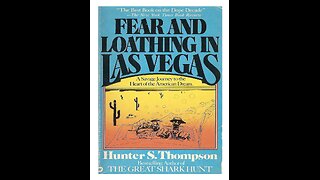 5:04:39
5:04:39
PukeOnABook
27 days agoFear and Loathing in Las Vegas H. S. Thompson, 1971
44 -
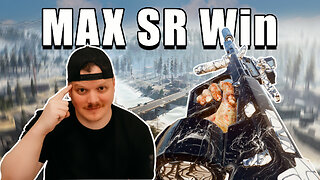 19:54
19:54
GritsGG
14 hours agoMAX SR Win on Warzone! Ranked Tips for Loadout & Landing Spot!
3.94K -
 LIVE
LIVE
Lofi Girl
2 years agoSynthwave Radio 🌌 - beats to chill/game to
289 watching -
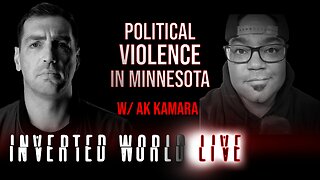 44:41
44:41
Inverted World Live
12 hours agoPolitical Violence in Minnesota w/ AK Kamara
160K18 -
 6:29:40
6:29:40
SpartakusLIVE
12 hours ago#1 Massive MEAT-HEAD can't stop WINNING, can't stop FLEXING
80.3K -
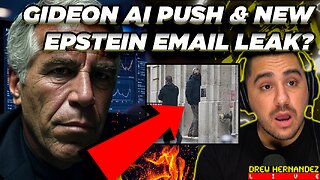 5:09:25
5:09:25
Drew Hernandez
13 hours agoGIDEON AI THREAT DETECTION SOFTWARE PUSH & NEW EPSTEIN EMAIL LEAK?
48.8K26 -
 2:03:51
2:03:51
TimcastIRL
9 hours agoTrans Minneapolis Shooter BLAMED Massacre On Mom & Gender Transition | Timcast IRL
187K353 -
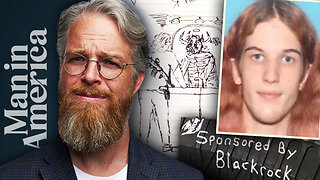 47:29
47:29
Man in America
16 hours agoIT DOESN'T ADD UP: The Trans Shooter's Story Is FULL of Holes
59K67 -
 3:59:36
3:59:36
StevieTLIVE
9 hours agoFriday Night Warzone HYPE
44.5K1 -
 3:47:10
3:47:10
SynthTrax & DJ Cheezus Livestreams
1 day agoFriday Night Synthwave 80s 90s Electronica and more DJ MIX Livestream Michael Jackson / AI Art Compilation Edition
53K2